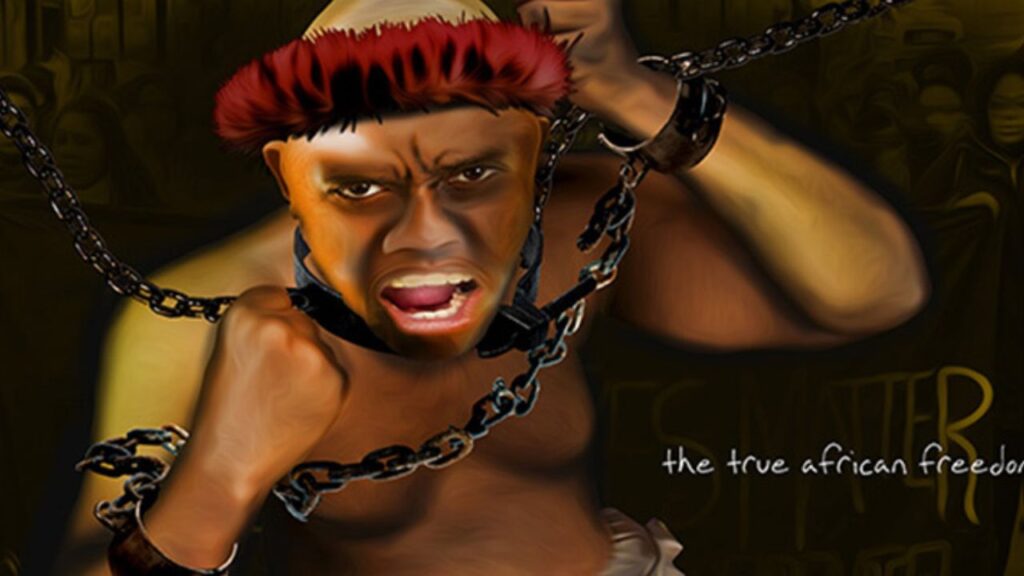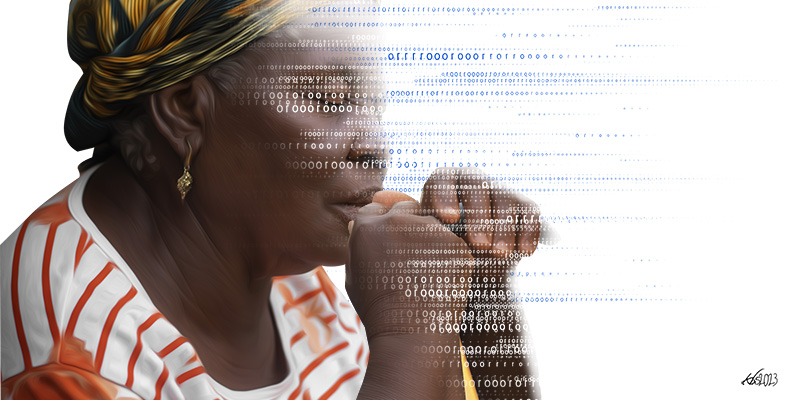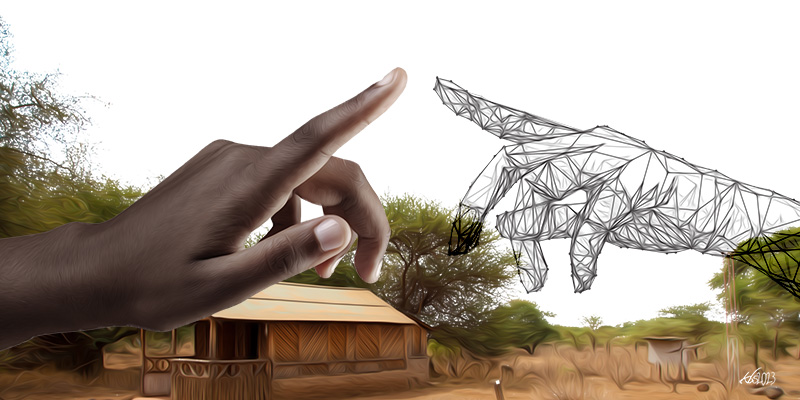The coronavirus has exposed and exacerbated deep ecclesiastical problems in the identity and witness of the church. Measures to mitigate the pandemic have pushed our church, the Anglican Church of Kenya (ACK), further into the shadows. For safety reasons, we have had to abstain from physical contact and public gathering and we are, therefore, not able to hear God’s word read or preached, and to receive the sacrament, in the way that we are used to. It has been unsettling.
The Church’s identity is fundamental to her visibility and, therefore, witness. The Church’s visibility is the most powerful message the world can receive, a message the world can trust because it shows the presence of God in our world. This visibility encourages and motivates the world to view the Church’s attributes as a reflection of the God she represents. Tied to the Church of England, the ACK shares the identity of a diverse “fellowship of one visible society whose members are bound together by the ties of a common faith, common sacraments, and a common ministry”, as the bishops attending the Lambeth Conference of 1920 envisioned. This has crystalised into the Anglican way of following Jesus in the world in the “fulness of Christian life, truth and witness”.
The ACK is an integral part of the Anglican Communion, which binds her to the order and doctrine of the Anglican Church. But her context is different, demanding, therefore, a unique response to best enhance our visibility. Until the emergence of this global pandemic, we have had little motivation to rethink and adjust our visibility in context.
Our moment of crisis confronts us with the question of whether our present ways can sufficiently guide us. Some consider the pandemic transient. They estimate the duration it will last, and ponder what we shall find on the other side. They will do everything in order to maintain our common life within our norms, allowing for as little disruption as possible. It is however clear that this crisis is monumental in scale, and will force radical shifts in our society.
In a recent article, the Malawi academic, Paul Tiyambe Zeleza, makes a disturbing prediction of the grim future we face. He cites Mr Richard Kozul-Wright, the Director of the Division on Globalisation and Development Strategies at UNCTAD, who noted that, “There’s a degree of anxiety now that’s well beyond the health scares which are very serious and concerning . . . the kind of meltdown that could be even more damaging than the one that is likely to take place over the course of the year”.
Peering into tomorrow’s world from the depths of crisis, can the ACK seize the moment and readjust to better her visibility?
The epistemologist and historian of science, Thomas Kuhn, calls scientific revolution a paradigm shift. In his book The Structure of Scientific Revolutions, Kuhn describes science as a process characterised by pre-paradigmatic, normal and revolutionary patterns emerging from the interactions of its component scientists, what we would call a complex adaptability system. According to Kuhn, a scientific revolution occurs when scientists encounter anomalies in the prevailing paradigm which they cannot resolve within their scientific framework. The paradigm, in Kuhn’s view, is not only the current theory, but the entire worldview in which it exists, and all the implications which come with it. Kuhn acknowledges anomalies within all paradigms, but maintains that scientists accommodate them as acceptable levels of error. Kuhn notes that when enough or significant anomalies accrue against a current paradigm, this throws the scientific discipline into crisis. It is during such a crisis that fresh ideas, perhaps ones previously discarded, are tested. A new paradigm is thus established, gaining its own new adherents and sparking an intellectual “battle” between the followers of this new paradigm and the adherents of the old.
Problems posed by the pandemic: the prevailing Anglican paradigm
The ACK Constitution of 2002 describes the church’s order of faith at length in Article III—On Doctrine and Worship. There are 14 provisions under this article that define the ACK’s position on following Christ. It is explicit from Article III(5) that the ACK Order of Faith aligns to that of the Anglican Churches worldwide.
The Church further accepts the Lambeth Quadrilateral of 1888 which outlines the Anglican essentials for a reunited Christian Church. The text of the Articles affirms the following: the Holy Scriptures of the Old and New Testaments as “containing all things necessary to salvation”, and as being the rule and ultimate standard of faith; the Apostles’ Creed as the Baptismal Symbol and the Nicene Creed, as the sufficient statement of the Christian Faith; the two Sacraments ordained by Christ Himself—Baptism and the Supper of the Lord—ministered with unfailing use of Christ’s Words of Institution, and of the elements ordained by Him and The Historic-Episcopate, locally adapted in the methods of its administration to the varying needs of the nations and peoples called of God into the Unity of His Church.
These affirmations, together with other teachings, laws and liturgical practices approved in this province and by those others that we are in fellowship with, can, in Kuhnian terms, be regarded as the ACK’s paradigm. For at the core of Kuhn’s thought is the notion that “paradigms,” are scientific theories or worldviews unique enough to attract an enduring group of adherents away from competing modes of scientific activity, and open-ended enough to leave many problems for the practitioners in the group to resolve. The ACK’s liturgical worldview and practice, draws from the Book of Common Prayer (BCP), and Our Modern Services (OMS), translated in several languages.
Anglicans believe that the Church is the visible body of Christ on earth. She manifests this notion in Christians gathering together—in such a gathering is Christ present—and speaking his word, read out, and/or expounded. Christ is present in the sacraments that link Christians mysteriously to him, and in the clergy as they administer sacraments, absolution and blessings.
Since the earliest days of the Church, Christians have gathered together to bless, break and share bread and to bless and share a cup of wine in obedience to the Lord’s command, given on the night before He died, to “do this in remembrance of me”. The Eucharist is what catholic Christians understand to be the most doxological act they can perform when they gather for “the principal act of Christian worship on the Lord’s Day and other major Feasts” (BCP:14 and also 2002 OMS:55). To hold such a service, there should be communicants other than the minister at every celebration of Holy Communion. From the time of Thomas Cranmer, mainstream Anglicanism has insisted that we celebrate the communion service as a community, with no fewer than two people. The Rubrics at the end of the Book of Common Prayer, Communion Office, declare that “there shall be no celebration of the Lord’s Supper except there be a convenient number to communicate”, which it defines to be “three at the least” in a parish.
We anchor the importance of the Eucharist in the church’s law. Along with Baptism, the Lord’s Supper, or Holy Communion, is a “Sacrament ordained of Christ” and “a sacrament of our redemption by Christ’s death”. For instance, the Canons of the Church of England teach the importance and centrality of the Eucharist. Canon B14 requires the celebration of the Holy Communion in at least one church in every benefice on all Sundays and principal Feast days, and on Ash Wednesday and Maundy Thursday. Canon B15 teaches that it is the duty of all the confirmed to receive the Holy Communion regularly, and especially at Christmas, Easter and Pentecost.
Over time, many factors contributed to a general decline in the celebration of the Eucharist every Sunday well into the late 19th and early 20th centuries, and Morning Prayer became the common service of worship on the Lord’s Day. ACK, a plant of the Church Missionary Society (CMS) which was more an evangelical low church, did not place the Eucharist as high in practice as the gathering of Christians in worship. There are Anglicans who gather for corporate prayer without the Eucharist. According to Richard Hooker, Christians assembled for corporate prayer, take part in communion with Christ himself, “joined . . . to that visible, mystical body which is his Church”. Hooker understands the corporate prayer of Christians as having a spiritual significance far greater than the sum of the individual prayers of the individual members of the body. He had very much in mind the assembly of faithful Christians gathered for the Daily Office. However, the Holy Eucharist is gaining precedence over Morning prayer, communion-wide, as the principal act of worship on Sunday.
What Kuhn argues of Science, that “rigorous and rigid” preparation is what helps to ensure that the received beliefs are fixed in the student’s mind, can be said of this paradigm influencing our understanding of when the Church gathers to worship, share the word and the sacrament. For scientists, Kuhn asserts, go to great pains to defend the assumption that scientists know what the world is like. And that “normal science” will often suppress novelties which undermine its foundations. Research is, therefore, not about discovering the unknown, but a strenuous and devoted attempt to force nature into the conceptual boxes supplied by professional education.
How churches responded to COVID-19 restrictions
The COVID-19 crisis has presented us with an immense challenge to this paradigm. The civil authorities stopped the physical gathering of Christians in churches, and ecclesial authorities endorsed this. In response, the churches adjusted to the order in a variety of ways to maintain visibility and witness.
Many churches switched to online service on internet platforms. Some turned to radio and TV services. In doing this they continued preaching the word of God and shared prayers. Others, who were outside the digital and mass media orbit turned to household and family worship sessions. Home alone, people are sustained in the theological assurance of Christ’s presence in our time of need. So, in such moments of crisis, people who wanted to draw closer to God, found connections through mass media and online platforms. They heard the word preached but had a challenge in celebrating the Eucharist. The sacraments are material, personal encounters; they do not exist in any other form; the Eucharist cannot be administered electronically. How can the bread and wine on the HD monitor, in a live-streamed mass, make the Eucharist? In invoking the words of the institution, “the Celebrant is to hold . . . or lay a hand upon” the bread and the wine; there is no gray area, and so it is not permissible to consecrate the Eucharist from a distance.
Many parish churches have, therefore, suspended the celebration of Holy Communion until they can meet together in person again. With this, has ceased the practice of public baptism for the duration of the restrictions that have been placed upon the Church.
The spiritual sacrament is an option that other churches have taken. We administer spiritual communion when a person desires to receive the sacrament, but cannot eat the bread and drink the wine. The celebrant assures this person that they have received all the benefits of communion, even though the person has not received the sacrament by mouth (BCP:457). This enables the spiritual reception, by observing a celebration of the Eucharist that is at the heart of the sacrament, even if physical partaking is not possible.
For others, the option of looking on was not workable. So, the parish congregation was informed when the Holy Communion would be celebrated in the priest’s home. Members of the congregation were provided with the programme and readings for the service and were invited to pray and read scriptures so that the service would take place within some kind of extended communal act of worship in that parish, and not as a private act of devotion.
In other communities, priests administered “drive-by communion”, where individuals drove through picking up the emblems of communion and driving away after the service. This presented a public health concern and further distorted the essential link between a communal celebration and the culmination of that celebration in the reception of the Eucharistic bread and wine.
Priests also made personal delivery of the emblems of communion to members in their homes. In these cases, the priest celebrated the Mass on Sunday and consecrated all the bread to be taken to the parishioners. Then the priest (and a few Eucharistic ministers) went to people’s homes (having cleansed their hands and kept the envelopes containing the emblems in brand new ziplock bags to avoid contamination). Depending on the size of the congregation, they applied the method for distributing the sacrament safely to people in their homes on Sundays.
Shocks to ACK practices during COVID-19
Kuhn maintains that there are anomalies within all paradigms which are considered acceptable levels of error or ignored and not dealt with. The above responses expose the immense anomalies accommodated within the Anglican paradigm. Although they solve the current problem, they provide solutions within the accepted norm with certain inconsistencies.
The most sacred feature of Christian gathering in the presence of Christ is the holy Eucharist, administered by the priest, and in a consecrated space. The Eucharist claims the actual presence of Christ and the reality of blessing when the elements are consumed by a real congregation. One therefore receives sustained spiritual blessings through frequent participation in such a service.
Where physical gathering is not possible, an alternative is foreseen where the parishioners are provided with a liturgy adapted from “Communion under Special Circumstances” (1979 BCP:396-399) to perform at home, as well as a bulletin and the lectionary readings. This is as Justin Martyr describes in his First Apology 65: “And when the presider has given thanks and all the people have assented, those called by us ‘deacons’ give to each one of those present to share the bread and wine and water over which thanks have been given, and they take [them] to those not present”.
Kuhn insists that should significant anomalies accrue against a current paradigm, it would throw the scientific discipline into a state of crisis. Such a crisis would demand retooling. Again, Kuhn explains, “So long as the tools a paradigm supplies continue to prove capable of solving the problems it defines, science moves fastest and penetrates most deeply through confident employment of those tools. The reason is apparent. As in manufacture, so in science —retooling is an extravagance to be reserved for the occasion that demands it”.
A crisis that locks the sanctuary and separates the clergy from the flock, would dim our visibility and stifle our liturgical life. We need not ask in such moments which is or is not permissible of the sacraments, as observed Rowan Williams; that leads to a dead end. Rather, the question for us sacramental people, he said, was not whether a practice was “right or wrong,” but “how much are we prepared for this or that liturgical action to mean?”
Since sacraments are actions that give new meaning to things, the current questions about the way we worship in this time of radical physical distancing invites the question of our preparedness for a sacramental encounter to have an alternative meaning. We should rather ask: what are we prepared for it to signify?
How shall we gather again after the period of restriction, during which we experienced the virtual church?
The attempts to stay in fellowship opened up an alternative way of gathering—the virtual meeting. Many Christians, who went online or turned to radio and television, now have multiple platforms on which to gather and connect. It will be difficult to restore the pre-coronavirus mode. We have arrived at a liberalised space of worship, where the anonymity of Christians will increase rather than decrease. For the individual Christians will have greater control over what they receive and will shut out what they do not desire.
Churches with a tradition of keeping a list of members that forms the basis for their local churches and denominations will experience difficulty in preventing their members from wandering across the field. We frowned upon moving from one church to another and regarded it as a kind of “sin”. The virtual church now gives Christians the anonymity and freedom to conceal their movements. People will belong to multiple congregations, and most probably become loyal to none.
Will our pastors and priests continue to signify the presence of Christ among us? Or will Christians maintain their newfound ways of experiencing God encountered during the period of restrictions?
We have up to now had a clergy-dependent way of following Christ. Pastors and priests have played a key role in the lives of Christians beyond religious matters. Their role therefore has remained vital, even in the absence of sacraments, as during the coronavirus crisis. This is because the church gathers around its priest who, besides administering the sacraments, pronounces the blessings, grants absolution of sins and who, through preaching and teaching the word, edifies the flock. There is a sense in which the flock is realising the access they have to God through Christ. Through prayers and listening to God’s word alone, some are developing an increased intimacy with Christ present in their homes. While for others, through their experience of the Daily Office, morning and evening prayers, they have found meaning in the word’s ministry and prayer.
Suppose the restrictions are lifted, will Christians opt for a continued non-physical experience of the sacrament?
Out of the coronavirus crisis emerged acts of personal delivery of communion to members in homes, drive-in communion, and a rekindled spiritual communion. Others have fasted the holy communion since the lockdown. The restrictions were necessary to protect neighbour and self from harm. Is it possible that, facing a prolonged threat and though allowed physical contact, many will prefer non-physical interactions? Taking communion to members’ homes may become the norm and that obviates the need of gathering. Some may become so accustomed to a spiritual communion which they have found exhilarating, that they will allow the sacraments to live up to their purpose as spiritual pointers.
There are observable movements away from the norms. ACK Christians realise that the sacraments and institutions that support their practice are symbolic enactments of processes of mind, heart and deed that could be expressed in other ways. They can encounter Christ through prayer, his word through the Internet and mass media, the non-physical partaking of sacraments, and yet faithfully be in sacred fellowship with the Catholic Apostolic Church of Christ. Will these changes in perspective spark a change in how we practice our faith?
A new awakening
The forecast is that the social and economic impact of the coronavirus will overwhelm weaker economies with fragile social safety nets. The Kenyan Anglicans faithful will strain to prop up this Church, a Church built with imperial concrete on the shifting sands of poverty. Such a structure, designed for the empire, loaded with dogmas, systems and traditions, incongruent with scriptures, and in desparate need of support and foreign aid, will not stand. Not for long. Besides, ACK does not have the backing of market capitalism and liberal democracy that other western countries of the communion have.
Perhaps the good to come out of this period might be an awakening to the pre-existing conditions of our religious decay. We were not as healthy as we made it to appear. Apart from being a medical condition, COVID-19 is also, and to a greater extent, a social virus which will eviscerate the Anglican Church as we know it today. We will wake up to an unfamiliar world after this pandemic. How shall we mitigate against extinction?
Scientists would not look backward in choosing from among existing theories when searching for alternatives. They seek “the fittest way to practice future science” says Kuhn, and therefore base their decision not on information about previous contributions but on the expected value of their own prospective contribution to a paradigm.
In an enthralling narrative on why civilisations die, Rebecca Costa recounts how when societies reach a cognitive threshold they can’t chart a path from the present to the future. They hit a gridlock. And there they die off. She explains that the fall occurs because problems become too many and complicated for the people of that time and place to solve. Such cognitive overload can happen to any system and may already be happening to the Anglican Church.
Costa gives two signs that point towards breakdown. First, there is a gridlock. Instead of dealing with what everyone can see are major problems, people continue as usual and pass their problems on to the next generation. Then there is a retreat into irrationality, for facts no longer make sense, and people take refuge in religious consolations.
How Judaism endured and survived the atrocities of the Roman empire, is a lesson for us today. The Jews developed a remarkable response to the destruction of the Second Temple (70 CE). Faced with the loss of the entire infrastructure of the Temple, its Priests, and sacrifices, Rabbi Jonathan Sacks explains, Judaism translated the entire system of divine service into the everyday life of ordinary Jews. “In prayer, every Jew became a Priest offering a sacrifice. In repentance, he became a High Priest, atoning for his sins and those of his people. Every synagogue, in Israel or elsewhere, became a fragment of the Temple in Jerusalem. Every table became an altar, every act of charity or hospitality, a kind of sacrifice”, Sacks elaborates. The Jews did not abandon the past.
But they did not cling to it either. They refused to take refuge in irrationality, Sacks observes, but they “thought through the future and created institutions like the synagogue and house of study and school that could be built anywhere and sustain Jewish identity even in the most adverse conditions”. Judaism has always survived, unlike other world civilizations, in one sense because of Divine providence, but Sacks attributes it also to “the foresight of people like Rabban Yochanan ben Zakkai who resisted cognitive breakdown, created solutions today for the problems of tomorrow, who did not seek refuge in the irrational, and who built the Jewish future”.
Our crisis presents us with the incentive to desire a new paradigm, and to invite others to the benefits it proffers. Kuhn describes shifts in paradigm allegiance as a conversion experience driven by the efforts of individual scientists to persuade each other. As Anglicans, we must contemplate worst-case scenarios, plan generations ahead and ask ourselves what we would do, if… What saved the Jewish people, Rabbi Sacks concludes, “was their ability…. never to let go off the rational thought”, and refusing to let their loyalty to the past come in the way of their future, they kept planning for the future.
Towards a new paradigm: priesthood for all believers
We should make all Confirmed Christians priests, give them authority to serve in the priestly role in church liturgy, sacraments and witness. To incorporate lay Christians into the priesthood will best realise our belief in the priesthood of all believers, a vision the ACK holds for Christians in divine service:
Lay persons form by far the greater part of the body of Christ. They cannot walk worthily in their high calling, unless they realize that they too are sharers in the heavenly high priesthood of Christ, and that this sharing must find expression in holiness, in witness, and in loving service of others (ACK. Const. 2002 Article VI: #7).
The laity are already leading in liturgy. This change should permit them not only to offer prayers but also grant absolution for the confessant, pronounce blessings on God’s people and last rites for the dying. Also, they should administer sacraments of baptism (this is already applicable in an emergency; full communicants other than a priest may baptise—OMS 2002:43) and Eucharist.
Making all believers priests would more reflect the scriptural ideal of God’s “kingdom of Priests and holy nation” than the present practice. Christians need to realise their calling as in Leviticus (19: 1-2) : “Speak to the entire assembly of Israel and say to them, ‘Be holy because I the Lord your God am holy’”. The New Testament affirms all believers in the priesthood of the New Covenant:
You also, as living stones, are being built up as a spiritual house for a holy priesthood, to offer spiritual sacrifices acceptable to God through Jesus Christ . . . But you are a chosen race, a royal priesthood, a holy nation, a people for God’s own possession, that you may proclaim the excellencies of Him who has called you out of darkness into His marvelous light (1 Pet. 2:5, 9).
The Rabbinic Judaism that emerged out of the devastating tragedy of the loss of the Temple, created a religious and social order that achieved this vision of the people as “a kingdom of Priests and a holy nation”. Their leaders made Priesthood the right and obligation of every Jew. Should we not do the same for Christianity and, more so, for our Anglican Church?
With all believers as priests, their lives will turn into God’s service in society. All believers will be more aware of themselves as the community of the Kingdom of God, now scattered in homes, fragments of the divine sanctuary. Yet in these small shards, the believers gather to encounter God upon whom they wholly depend. And as explained by Niringiye, “the visibility of the community is in its gathering . . . in Jesus’ name”. They will engage in God’s service through prayer. And make sacrifices by acts of charity, create sacred fellowship by hospitality with every table becoming an altar for offerings unto God. Hence, the community of believers will exist as a divine sign pointing to the reality beyond, at the same time reflecting the glory of Christ in the present. Christians, now priests, would in the vision of Bishop J.E. Lesslie Newbigin, be the instruments through which God carries His will for justice, peace and freedom in the world, and as a foretaste of the presence of the Kingdom.
We must transform institutional church structures into instruments to equip all believers for service. They should be centres for Christian education where we train our children in our faith, giving them the tools to thrive as Christians in the world. Using our church infrastructures as centres for Christian learning would in effect reorient our priests to actualise their role as teachers and instructors of the faith. Equipping believers, through guiding them in understanding the holy texts and doing theology, will stir the development of fresh liturgy and visibility. Christian theology encourages an engaged spirituality, which lives out its theological convictions in social life. An engaged spirituality seeks to be true to the essence of theology, which St Anselm of Canterbury (11th century) defines as fides quaerens intellectum — faith in search of understanding.
What the ACK should discover, is not the proclaiming a timeless universal truth, but the listening to God’s involvement in the stories of the local community. The Church ought to recognise that it is in opening herself up that she will experience a true radical transformation. A true transformation is a gift of listening to the traces of God’s involvement among us, which brings about liberation and thus creates a space for impossible possibilities. And these are the true transformations.
We can achieve for the Anglican Church what the prophets, the sages, and the Jewish thinkers of the Middle Ages accomplished for Judaism. They realised that sacrifices were symbolic enactments of processes of mind, heart and deed that could be expressed in other ways. The study of the Torah, once the preserve of the priesthood, became the right and obligation of everyone. Sacks concludes, not everyone could wear the crown of Priesthood, but everyone could wear the crown of Torah; Judaism transformed to cope with the new contexts the Jewish people found themselves in.
The ACK is in a liminal space concerning her visibility. A space of being in transition. She must open herself to listen and search for God’s involvement in the world. It is by being in conversation and interpreting God’s involvement that she will be in the transition, from an institution founded on truths and established practices, to an open community, vulnerable, and exposed to the impossible possibilities of Christ’s presence, outside traditional places.
We are yet to understand the impact of this pandemic, it may be worse than we are projecting. Should we just contemplate worst-case scenarios? No, we should plan generations ahead, ask ourselves what we would do, if… What saved the Jewish people, Rabbi Sacks concludes, was their ability never to let go off rational thought, and, refusing to let their loyalty to the past get in the way of the future, they kept planning for the future.
If the ACK, and the Anglican Church, adopt this proposal, any future suspension of physical public gathering would not affect her visibility. Christians would continue to hear God’s word read or preached, and to receive the sacrament in another way.This will then be a Church that has opened herself to the paradigm shift.
This article is an abridged version from a journal article published in The Elephant document and archive section.








